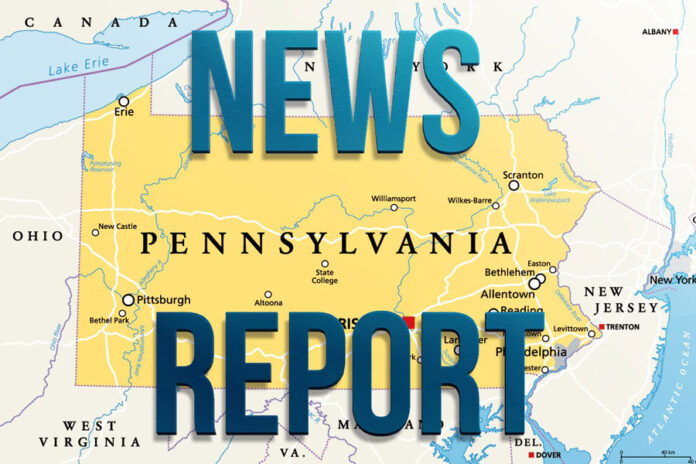Pittsburgh Post-Gazette. May 27, 2023
Editorial: Don’t punish medical marijuana drivers without cause
Pennsylvania drivers can be charged with a DUI, regardless of demonstrated impairment, if marijuana is detected in their system. Some tests can detect marijuana that has been consumed in the last twelve hours; others, within a month of use. But none can confirm whether someone is under the effects of THC at any given moment.
Keystone State drivers who are obviously impaired should be ticketed, but arresting anyone with marijuana in his or her system can lead to widespread abuse. As a safeguard, state law should grant non-impaired drivers with medical marijuana licenses a shield from DUI charges. Even Pennsylvania State Police testified in favor of such legislation last year.
Rep. Chris Rabb, D-Philadelphia, and Rep. Aaron Kaufer, R-Luzerne, co-sponsored a bill in the state House that “would protect medical marijuana patients from being charged with DUI simply because drug tests show the presence of THC in their systems.”
Common sense supports this legislation. A so-called zero tolerance policy might have made sense when it was enacted, but that was before almost half-a-million registered medical marijuana users lived in Pennsylvania. Representatives Rabb and Kaufer noted in their memo that medicinal cannabis patients regularly contact their offices concerned that state law makes it illegal for them to drive.
As the Post-Gazette’s John Finnerty reported, Pennsylvania is one of only a few states with zero tolerance for controlled substances. Thirty-three states, including those with no legal access to cannabis, require proof of actual impairment.
“Actual impairment” is what endangers drivers. People who use THC for sleep disorders will spend most working hours sober and driving responsibly — but they would still fail a drug test.
Until more sophisticated tests are developed, officers should rely on visible signs of impairment when charging licensed cannabis users. DUI charges on the basis of a positive test result should be reserved for those who are not enrolled in the state’s medical marijuana program.
Shield laws would help prevent the state from punishing responsible drivers who are getting the medical help they need.
___
Pittsburgh Tribune-Review. May 27, 2023
Editorial: Pennsylvania should streamline unclaimed property process
Sto Rox Community Federal Credit Union was holding a share of money for a woman named Genevieve.
Genevieve didn’t withdraw it. We don’t know why. She could have moved. She might have forgotten about it. Maybe a parent opened the account for her and she never even knew about it. Maybe she passed away.
What we do know is that after a period of time, Genevieve’s money was passed along to the state for safekeeping.
Today it is mingled in a pool of unclaimed property money held by Pennsylvania for thousands of other people — and companies — just like her. There is more than $4 billion jumbled in a stew of things like misplaced pensions, neglected college funds, uncashed stock dividends, misdirected insurance payments and the liquidated value of real property in safe deposit boxes.
Connecting people and money is something the government generally does pretty well. Don’t pay your taxes? You are located. Drive on the turnpike without an E-ZPass on a trip? Your bill could be waiting for you in the mailbox before you get home.
Yet with this large pot of cash, the government has been content to sit on it and make the people come to them. Why?
The whole system depends on you knowing that you have property to claim, even though Pennsylvania doesn’t require institutions to tell you that your money has been turned over to the state.
Then there are the hurdles. The database does not tell you how much an individual account is worth. Let’s look at Genevieve’s again. The entry only says it is “under $100.” That could be almost nothing. Collecting the money could mean taking time off work, finding supporting documentation, going to get the paperwork notarized, sending it to Harrisburg or taking it to a state legislator’s office.
And that’s if no one is dead. Pennsylvania makes you buy a copy of a death certificate from the state to send back to the state to include in the paperwork. If the owner’s estate was already closed, you might have to involve lawyers to reopen it without knowing the value of the property in question. All that means claiming the property might be a losing proposition.
State Treasurer Stacy Garrity is looking to make the process more automatic. A Spotlight PA story shows that requires changes to the law. A bill that would allow that was just voted out of committee unanimously.
Good.
The change would apply to funds under $5,000 for owners, not heirs. It wouldn’t apply to businesses or organizations. Those more complicated cases would still require applications.
Garrity admitted it wouldn’t significantly increase the amount of property returned. Big deal. Increasing it at all is a good thing.
But more importantly, this is a way that government can take the roadblocks out of the process. There is no reason to make obtaining your own money unnecessarily difficult. Change the law and send Genevieve her check.
___
Scranton Times-Tribune. May 28, 2023
Editorial: Don’t wait for master plan on seniors policy
About 3.4 million of Pennsylvania’s 12.9 million residents are 65 or older, the fifth-highest concentration among the states. And that population’s growth rate is 20 times greater than that of the general population, according to the state Department of Aging. By 2030, one of every three Pennsylvanians will be at least 65, compared with today’s one of four.
So it makes sense for the department, headed by Jason Kavulich of Lackawanna County, to launch a 10-year master plan to develop coherent state policy regarding seniors. Gov. Josh Shapiro signed an executive order Thursday in Scranton to launch the project.
Aging issues entail a great deal of government policy, including drug costs, independent living, access to quality long-term care, transportation and much more.
The state need not wait for a master plan to act on some of the pressing problems that face many older Pennsylvanians, or to seize some new opportunities.
One major issue on which the Legislature repeatedly has whiffed is property tax reform, which in turn is tied to the state government’s long-standing failure to assume a higher percentage of public school funding.
The state government still funds only about 36% of budgets for 500 school districts. That places enormous pressure on local property taxes, which now total about $17 billion a year statewide.
Shapiro has proposed greater rent and tax rebates for older residents, but lawmakers should shift more of the tax burden to the state government. Relieving the local tax burden would enable far more seniors to remain in and live comfortably in their homes.
As the governor noted Thursday, 280,000 older Pennsylvanians have been diagnosed with Alzheimer’s disease. The state projects that the number will increase to 330,000 by 2025.
The Food and Drug Administration recently approved a new drug that has been shown to slow Alzheimer’s progression by about a third. But the question is access. Shapiro and the Legislature should require insurers to cover the drug, and join the effort to ensure that Medicare and Medicaid cover it.
A master plan is a worthy endeavor. But some matters are ripe for action now.
___
Wilkes-Barre Citizens’ Voice. May 27, 2023
Editorial: State pays polluter, then slaps wrist
Shell isn’t very good at controlling air and water pollution at its massive new petrochemical refinery in Beaver County, but it is adept at politics and math.
The state Department of Environmental Protection announced this week that Shell had agreed to pay $10 million for releasing hazardous materials well in excess of regulatory limits, including volatile organic compounds from October through April, carbon monoxide from February through March 2023, and nitrogen oxides and hazardous air pollutants from December through April. The DEP also cited the company for flared-gas violations from June through April, and odor violations at its wastewater treatment plant in January, February and April.
In a conference call with gas industry analysts, Shell CEO Wael Sawan called the pollution discharges “technical niggles.”
Andie Grey, who lives three miles from the plant, had a different description: “The overwhelming and toxic pollution residents have been exposed to has already harmed this community — there is no price tag that will allow for this to be acceptable.”
State officials characterized the $10 million agreement as a significant enforcement action, but for Shell it undoubtedly is merely a cost of doing business.
The state government itself proves that point. More than a decade ago, Gov. Tom Corbett and allied legislators raced to provide Shell with
$1.7 billion in state tax credits to build the plant, which uses the byproduct ethane from Marcellus Shale natural gas production to produce plastics. The $10 million agreement leaves Shell only $1.69 billion ahead of the game.
As governments around the world try to reduce plastic pollution, including many in Pennsylvania through plastic-bag bans and anti-litter programs, the state government pays a company to produce 3.5 billion pounds of plastic a year, increasing air pollution in the process.
Yet, the state government remains optimistic: “We know that Shell can operate a state-of-the-art facility that helps grow our economy without harming the environment, and we are going to hold them to the requirements laid out in their permits,” said acting Pennsylvania DEP Secretary Rich Negrin.
Actually, he doesn’t know that, or whether a slap-on-the-wrist agreement will cause the company to prove him right.
END



















